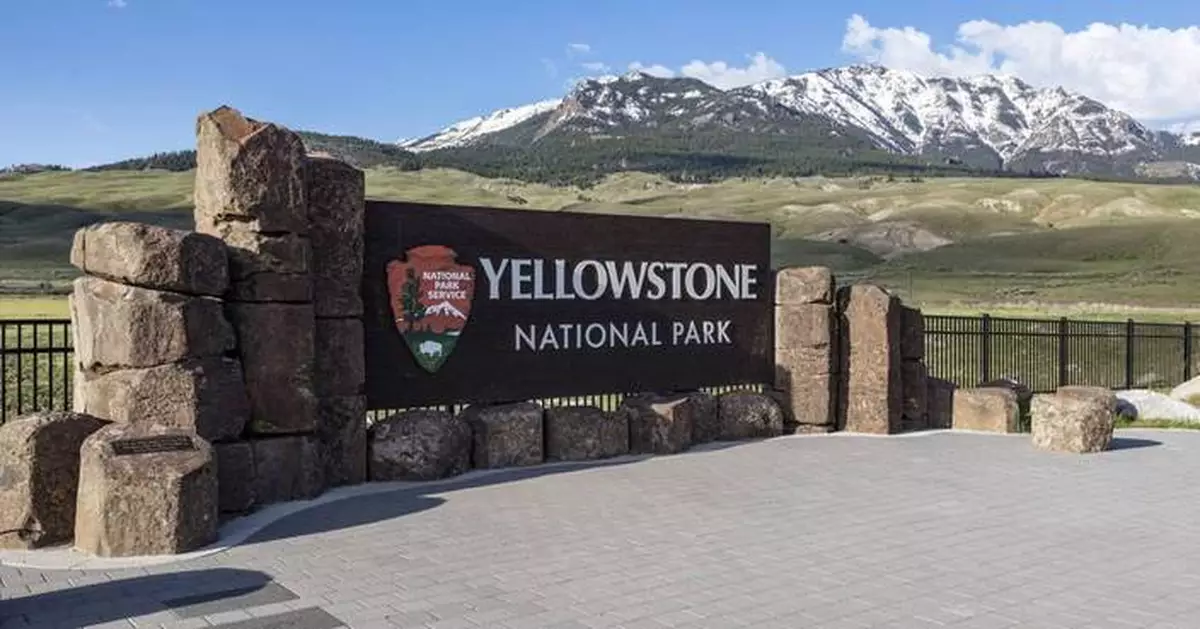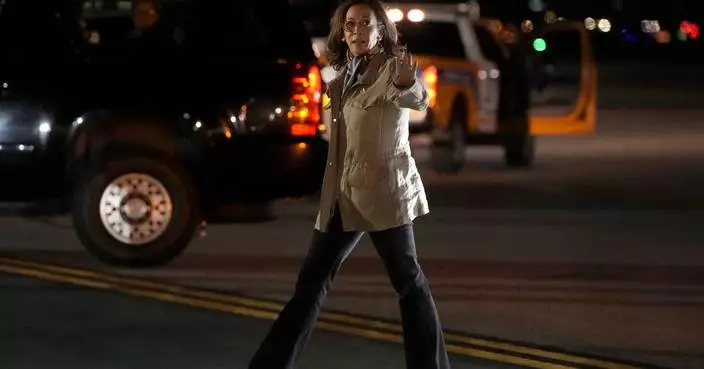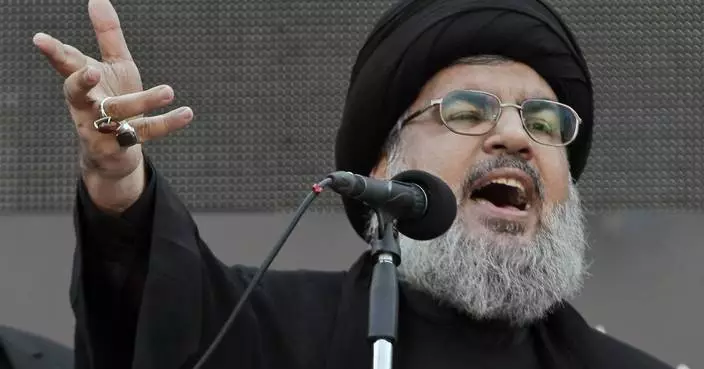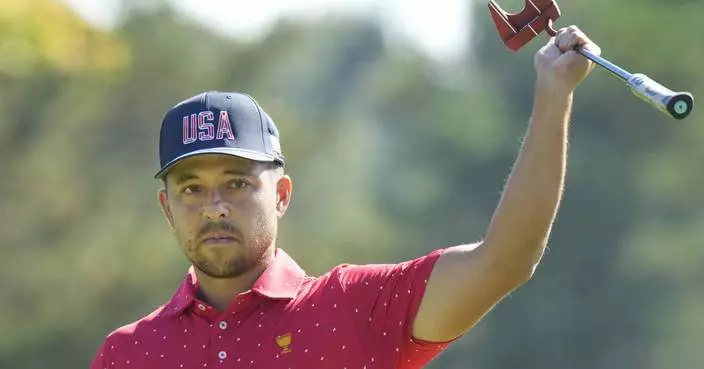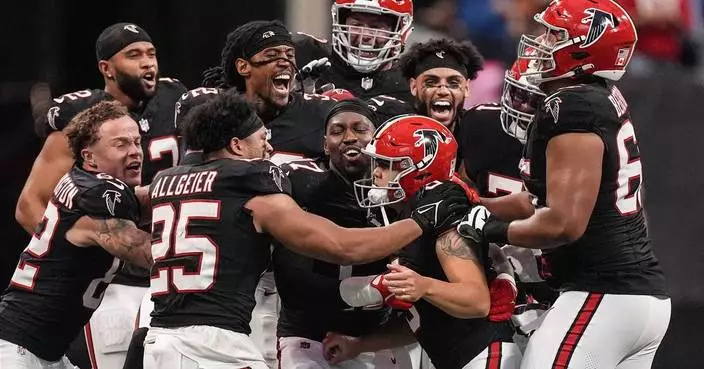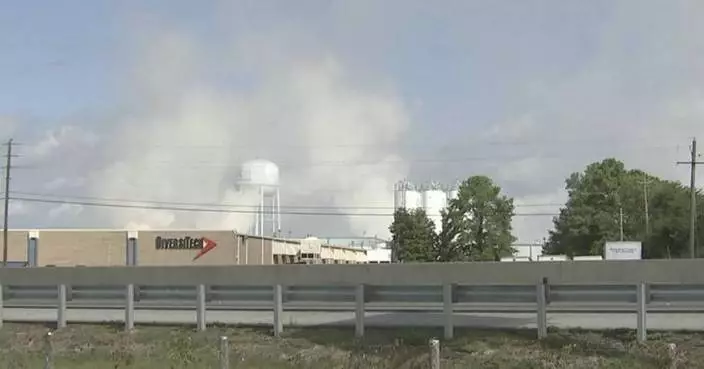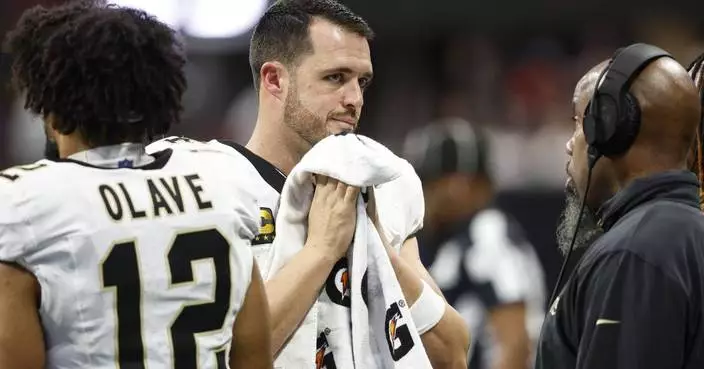CHEYENNE, Wyo. (AP) — Outrage over how a man struck a wolf with a snowmobile, taped the injured animal's mouth shut and brought it into a bar has resulted in a proposal to tweak Wyoming's animal cruelty law to apply to people who legally kill wolves by intentionally running them over.
Under draft legislation headed to a legislative committee Monday, people could still intentionally run over wolves but only if the animal is killed quickly, either upon impact or soon after.
Wyoming's animal cruelty law is currently written to not apply at all to predators such as wolves. The proposed change would require a person who hits a wolf that survives to immediately use “all reasonable efforts” to kill it.
The bill doesn't specify how a surviving wolf is to be killed after it is intentionally struck.
The fate of the wolf struck last winter in western Wyoming has prompted a fresh look at state policies toward wolves. Wildlife advocates have pushed back against reluctance in the ranching state to change laws written after long negotiations to remove federal protection for the species.
Although further changes to the draft bill may be in the works, the proposal up for discussion Monday wouldn't change much, said Kristin Combs, executive director of Wyoming Wildlife Advocates.
“Everybody is against torturing animals. There is not a person I’ve come across so far that has said, ‘Yes, I want to continue to do that,’" Combs said Friday.
Caught on camera, the wolf seen lying on a bar floor in Sublette County led to calls to boycott Wyoming’s $4.8 billion-a-year tourism industry centered on Yellowstone and Grand Teton national parks, which comprise a prime wolf habitat not far from where the wolf was struck.
The organizing has had little effect, with Yellowstone on track for one of its busiest summer seasons on record.
Meanwhile, the man who hit the wolf — and killed it after showing it off — paid a $250 ticket for illegal possession of wildlife but did not face tougher charges.
Investigators in Sublette County said their investigation into the wolf incident has stalled because witnesses refuse to talk. County Attorney Clayton Melinkovich said by email Friday the case remained under investigation and he couldn't comment on its details.
The draft bill to be discussed Monday would allow somebody who intentionally hits a wolf with a vehicle to be charged with felony animal cruelty if it survives and they don't kill it right away.
How often wolves in Wyoming are intentionally run over — for a quick death or otherwise — is unknown. Such killings don't have to be reported and recorded cases like the Sublette County incident are rare.
The case brought fresh attention to Wyoming's policies for killing wolves, which are the least restrictive of any state where the animals roam. Wolves kill sheep, cattle and game animals, making them unpopular throughout the rural country of ranchers and hunters.
Across the region, state laws seek to keep the predators from proliferating out of the mountainous Yellowstone ecosystem and into other areas where ranchers run cattle and sheep.
In most of the U.S., wolves are federally protected as an endangered or threatened species, but not in Wyoming, Idaho and Montana, where they are hunted and trapped under state laws and regulations. In Wyoming, wolves may be killed without limit in 85% of the state outside the Yellowstone region.
Though few in Wyoming have spoken out in favor of what happened to the wolf, officials have been reluctant to change the law to discourage maltreatment. Jim Magagna with the Wyoming Stock Growers Association condemned what happened but called it an isolated incident unrelated to the state’s wolf management laws.
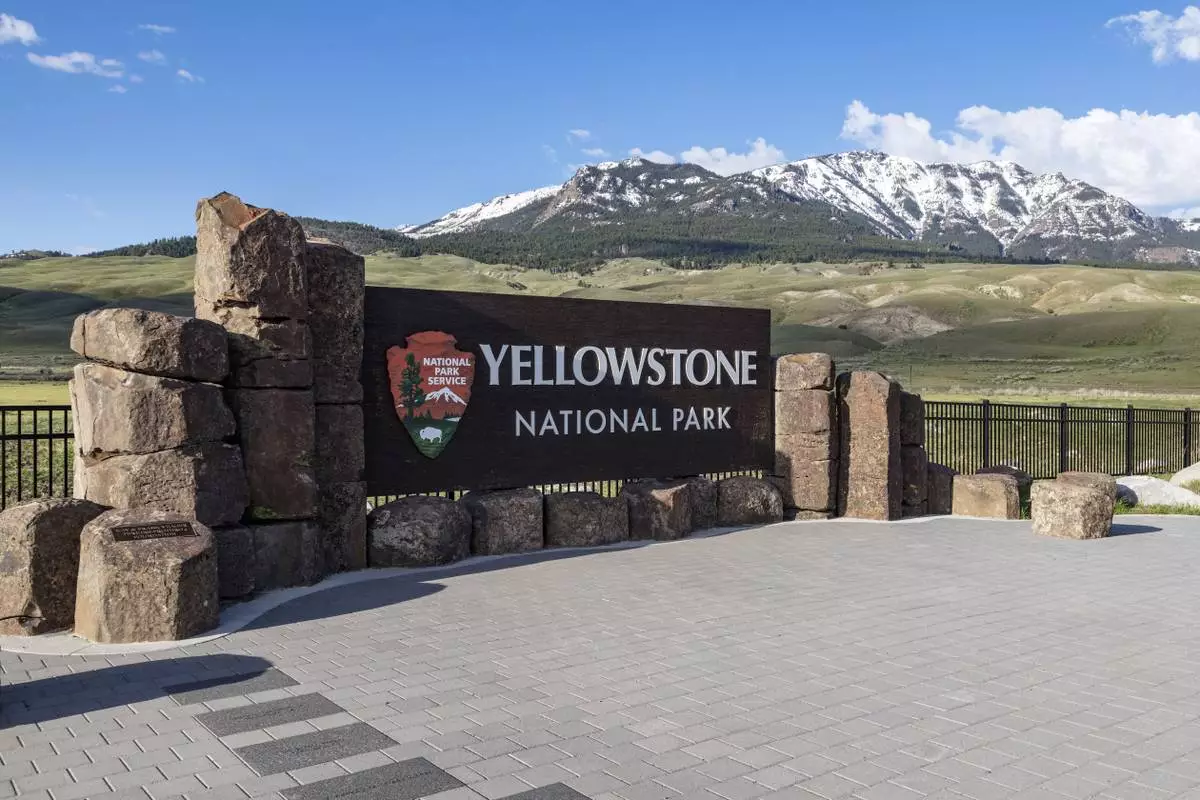
FILE - This photo provided by the National Park Service shows a sign marking the north entrance of Yellowstone National Park, May 7, 2018. (Jacob W. Frank/National Park Service via AP, File)
WASHINGTON (AP) — As he campaigned for the Senate two years ago, JD Vance harshly criticized a bipartisan 2021 law to invest more than $1 trillion in America’s crumbling infrastructure, calling it a “huge mistake” shaped by Democrats who want to spend big taxpayer dollars on “really crazy stuff.”
That hasn’t stopped the first-term Ohio senator and Republican vice-presidential nominee from seeking more than $200 million in federal money made available through the law for projects across his state, according to records reviewed by The Associated Press.
Vance is hardly alone among Republicans who have condemned spending enacted under Democratic President Joe Biden, only to later reap the benefit when government funds flow to popular projects back home. In this case, he also was criticizing the achievement of one of the bill’s authors — former Sen. Rob Portman, the Ohio Republican he succeeded.
“I believe you should campaign how you govern so that you are consistent in your message and voters know what they are going to get,” said Ohio state Sen. Matt Dolan, one of Vance's 2022 Republican primary rivals, who was the only GOP candidate to support the bill.
Parker Magid, a spokesperson for Vance said, “Senators are elected by their constituents to fight for them in Washington, regardless of the party in charge. The fact is that this bill was a wish list of destructive Biden-Harris policy proposals and over 1,000 pages long, but as his constituents expect of him, Senator Vance successfully advocated for full and fair consideration of legitimate expenditures on Ohio projects by the federal government.”
To the man Vance defeated in the general election, former Democratic congressman Tim Ryan, Vance's pivot “fits the general pattern of him being two-faced on just about everything.”
"Look at the Trump stuff," Ryan said. “He was ‘America’s Hitler'" in Vance's estimation, ”then when it didn’t benefit him anymore to have that view, he changed it.”
Trump had vowed to pass an infrastructure bill when he was president, but did not offer a plan, and “Infrastructure Week” became something of a punch line.
That changed after Biden became president. A bipartisan group of senators including Portman and Arizona Sen. Kyrsten Sinema, then a Democrat, hashed out a roughly $1 trillion package that passed with 19 Republicans joining Democrats.
Vance criticized the bill as a boondoggle tainted by Democrats’ preoccupation with racial justice.
“I’m reading through this new infrastructure bill, and it includes all these ridiculous references to things called transportation equity, which is basically just importing critical race theory into our nation’s infrastructure programs,” Vance tweeted in August 2021. “It’s totally ridiculous and it’s obvious that Republicans have been had in supporting this bill.”
During a September 2021 interview with CBS News, Vance said that the “mistake that Republicans have recently made on bipartisanship is that we gave Democrats a huge win.”
“We do have infrastructure problems, but I don’t think this bill actually spends the money on the things that we need,” he said of the legislation, which Trump opposed.
Portman, who cited “partisan gridlock” as a reason he retired from the Senate, was unavailable for comment.
After taking office in January 2023, Vance appears to have warmed to the legislation his predecessor helped write — though not publicly.
In 10 letters addressed to Transportation Secretary Pete Buttigieg that were sent between 2023 and 2024, Vance requested more than $213 million made available through the law for Ohio projects, according to copies of his correspondence obtained by the AP. At least four of those projects were approved and are slated to get about $130 million, federal records show.
Toledo received nearly $20 million to revitalize a majority Black area that was isolated from the city’s downtown when Interstate 75 was built in the 1960s. Toledo officials described the planning decision behind the location of the freeway as “discriminatory” in their federal application for the funding.
“These once-thriving communities now suffer from some of the city’s highest rates of poverty, unemployment, and blight," the application states. “Historically, this majority-Black area has been disproportionately impacted by harmful transportation policy decisions.” The application said those policies “caused displacement from which the area has never fully recovered.”
Vance had previously mocked a journalist who asked Buttigieg about bias that went into decades-old planning decisions. “Nothing in our country works,” he tweeted in November 2021. “And our reporters ask about the racism of our roads?”
As a senator he wrote that the project in Toledo had potentially “far-reaching” benefits, though he did include a disclaimer that he opposed “the Biden Administration’s emphasis on diversity, equity, and inclusion over outcomes of meaningful infrastructure improvements."
In another instance, Vance sought $29 million for low or no emissions buses. Vance has repeatedly railed against Democratic efforts to reduce emissions. In a recent opinion article in The Wall Street Journal, he singled out Vice President Kamala Harris and the Biden administration's support for zero-emission efforts, arguing that they were “stifling investment in the coal, natural gas, and nuclear plants that Americans rely on.”
Dolan, Vance's 2022 primary rival, said he's glad the senator seems to have changed his mind about the bill.
“The talking points during a campaign sometimes don't match the responsibility of governing," Dolan said. “I think the two should be indistinguishable. That's what it means to be a public servant."
He said if lawmakers were to "reject those dollars for political reasons, Ohio would suffer.”

Republican vice presidential nominee Sen. JD Vance, R-Ohio, speaks during a campaign rally Saturday, Sept. 28, 2024, in Newtown, Pa. (AP Photo/Laurence Kesterson)



